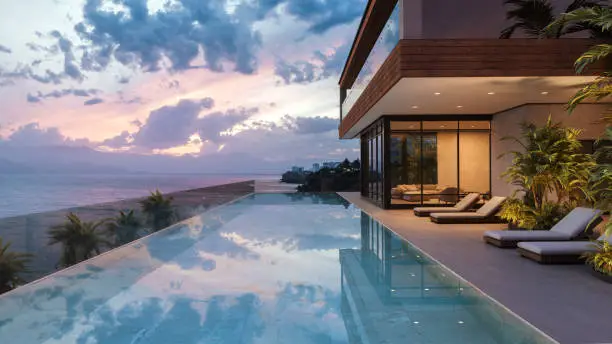Below is. step by step guide that will take you through all practical tips and ways of saving money on pool maintainance
Many dream about a pool, but more often than not, it just tends to bleed the money right out of your wallet in order to keep it. It doesn't need to be this way once you know the right approach with inside tricks. While this may be true in real life, with due attention and intelligent planning, it's quite possible to keep the pool, have it clean and safe, and at the same time economize.
1. Fundamentals of Pool Maintenance
Before any tips on the saving of money regarding pool maintenance could be provided, it becomes necessary to explain what the key elements of pool maintenance are. Three requisite elements are:
•Water Circulation: Good circulation in water maintains its cleanliness. The water which is stagnant does not occur. That further deters algae growth.
•Filtration: Filtration means cleaning the water by using a filter; it traps dirt and debris inside it. It requires regular cleaning so that it can serve its purpose in water.
•Water Chemistry: Pool balancing is an art where you maintain the right amount of chemicals like chlorine, pH, and alkalinity for the prevention of bacteria and algae growth.
The regular treatment of such issues will reduce the necessity to have to fall back on more costly treatments later on.
2. Regular Skimming of the Pool: Prevention Rather Than Cure
Why It's Important: Skimming on the surface of your pool will remove leaves, insects, and other debris before they reach the bottom, decaying and starting algae formation.
Money-saving Tip: Invest in a long-handled leaf skimmer and get this done daily. It takes only a few minutes but saves money in lessening the work your pool filter has to do - ultimately keeping your water much cleaner for longer.
3. Keep Your Pool Filter Clean: The Heart of Your Pool
It catches the debris as water in the pool passes through it to keep the water clean. In time, it will be clogged and would strain your pump to make it consume more energy.
Money-Saving Tip: Clean the pool filter on a regular basis. If you live in a dusty area, or if leaves are a big problem in your pool, then you will want to clean it more often.
•Sand Filters: backwash it-this will take out the debris.
•Cartridge Filters: this should be removed and hosed with a garden hose. When needed replace the cartridge.
Clean filter decreases the energy consumption by the pump hence reducing your energy bills.
4. Use a Pool Cover: Save on Heat and Cleanings
It surely is a great money saver when it concerns pool equipment. Minimizes evaporation, keeps the debris away, and helps in keeping the warmth in the water.
Money-saving Tip:Be in the practice of keeping your pool covered at all times while not in use, more so when it's nighttime or during cold periods. This way, it cuts down the evaporation rate of water in it; this would, in turn, reduce how frequently one needs to refill his/her pool. It cuts down heat loss and therefore assists in saving on heating costs; it again cuts the number of chemicals one needs to balance the water.
5. Maintain Proper Water Levels: Don't Overfill
Your water level lowers some each day due to evaporation, splashing and leaks. If your pool is overfull this may be a cause of lost water by way of overflow. A low water level can stress your pump.
Money-Saving Tip: Get into the routine of checking your water level. The water in your pool should be at the halfway point of your skimmer opening. It is much more cost-effective filling your pool with a hose than it is to have an automatic fill system that at times will overflow your pool and all of that water goes to waste.
6. Balance Your Pool Chemicals Yourself
Professional testing of your pool's water chemistry is prohibitively expensive on a regular basis, and most of the tests you're capable of doing yourself once you have a general understanding of the chemicals involved.
Money-Saving Tip: Purchase a water test kit to become familiar with key ranges in pool chemistry.
Here are some important ones:
pH: 7.2-7.6
Chlorine: 1-3 ppm
Alkalinity: 80-120 ppm
Calcium Hardness: 200-400 ppm.
This will reduce service calls but also allow for more accurate estimates of the quantity of each chemical needed for the water conditions with considerably less overestimation of needs. When possible, it pays to buy bulk chemicals as this is not as costly.
7. Invest in Energy-Efficient Equipment
The two most energy-consuming equipment within a swimming pool are, in fact, pumps and heaters. The truth is that models tend to be less efficient as compared to newer models that have been introduced into the market these days.
Money-Saving Tip: If your pump or heater is antiquated, get an upgrade to a more energy-efficient model. Although high at first, these energy-efficient pumps can reduce energy consumption by as much as 90%. This gives you huge savings over a long period. Another option would be variable-speed pumps, which adjust speed depending on the needs of your pool.
8. Do-It-Yourself Cleaning Instead of Professional Pool Cleaning Service
Well, professional service in pool cleaning is pretty handy, but far from being the cheapest option.
Money-saving Tip: Clean the pool yourself on a routine basis. Other than a few simple tools, such as a telescoping pole and vacuum and brush, your pool will remain in great shape. The brushes scrub the algae off of the sides and steps while vacuums pull the other stuff off the bottom. You can easily invest a few hours every week cleaning your own pool and save hundreds of dollars every year in professional fees.
9. Run Your Swimming Pool Heater Less
Having the capability of heating your pool is nice but does come with some added expenses to it. The more you use to heat your pool, the higher those energy bills are going to be.
Money-saving Tip: Operate the pool heater less by:
•Putting in a solar pool cover that will help to naturally retain the heat.
•Setting the heater to a moderate temperature setting: 78-80°F.
• Switch off the heater when the pool is not going to be used for quite some time.
This can also save drastically the long-term energy costs for solar pool heaters.
10. Shock Treatment to the Pool on Regular Basis
Pool shocking generally means dosing with high levels of chlorine or any other chemicals that kill the bacteria and algae, which may have passed through normal chlorination. This will leave the water crystal clear, free from impurities.
Money-Saving Tip: Never let problems like cloudy water or algae make you have to shock your pool. Also, shocking on a regular schedule of every 1-2 weeks prevents problems that are costlier to eliminate. And shock at night because the sun can break down the chlorine relatively quickly.
11. Check for Leaks: Early Detection Saves Money
This results in wastage of water and damages to other structural elements and the foundation of your pool, which are very expensive repairs.
Money Saving Tip: Monitoring your pool for leaks regularly can be done in one of the easiest, simplest ways; referred to as the bucket test:
•Fill a bucket with water and set it on the first step of your pool.
•Mark the inside of the bucket and put one on the pool water level outside the bucket.
•In its replacement after 24 hrs both have drops but if the one on the outside of the bucket happens to be larger than the one inside the bucket, you could have a leak.
The repair of early leak keeps you away from further damage that would time-consuming and costly. You also avoid filling your pool with water unnecessarily.
12. Do not overuse Chemicals
While it's a great idea to keep your pool balanced, too many chemicals can be quite expensive and even hurtful in terms of the general effectiveness of such chemicals.
Money-saving tip: Only proceed and do the additions based on your test results of your pool. The more chemical additions you use, the more imbalances it will create that would need even more adjustments and additional costs for you.
13. Properly Winterize Your Pool
By the time the summer season is over, for most people who live in cold states, winterizing your pool to keep its good condition is pretty important.
Money-Saving Tip: If you happen to be living in an area where you are required to shut down your pool for the winter months, do it yourself and save money instead of hiring a professional to have it done. Activities involved in this would include but are not limited to:
•Lower the water level below the skimmer
•Add Winterizing Chemicals
•Drain the water from pump, heater and filter
•Heavy-duty winter cover put on the pool.
This will save you from certain expensive repairs or deep cleanings once it's time to reopen your pool.
14. Investing in Robotic Pool Cleaners
Robotic pool cleaners are expensive up front but over time they pay for themselves through the money they save in chemicals and professional cleanings.
Money savings tip: These machines will cut work on your pool filtration system by a large margin since they'll effectively clean the walls and floors, pick up leaves, and circulate the water. The water will remain clear for much longer thereby cutting down on chemical use as well as energy consumption of equipment in the process.
15. Monitor Pool pH to Protect Equipment
This will keep the water comfortable for swimmers while protecting your pool equipment against corrosion and scaling.
Money-Saving Tip: The pH level in your pool should be kept between 7.2 and 7.6 because even a little higher or a little lower, the pH of your pool will damage its metals and the pumps and filters. Thus, it makes repair costs expensive, let alone the replacement cost. You can control the pH on a shoestring by adding baking soda to increase its alkalinity or muriatic acid.
Conclusion: Economical Care for Your Pool
Caring for your pool doesn't have to be expensive. As a matter of fact, by continuing to observe these tips in saving money and making them part of your normal care routine, you are going to go a long way toward trimming costs while keeping your pool clean, safe, and inviting. Add in some regular maintenance and energy-efficient equipment, and that little bit of do-it-yourself elbow grease will go a long way in maintaining the life of your pool, along with your wallet health.


























